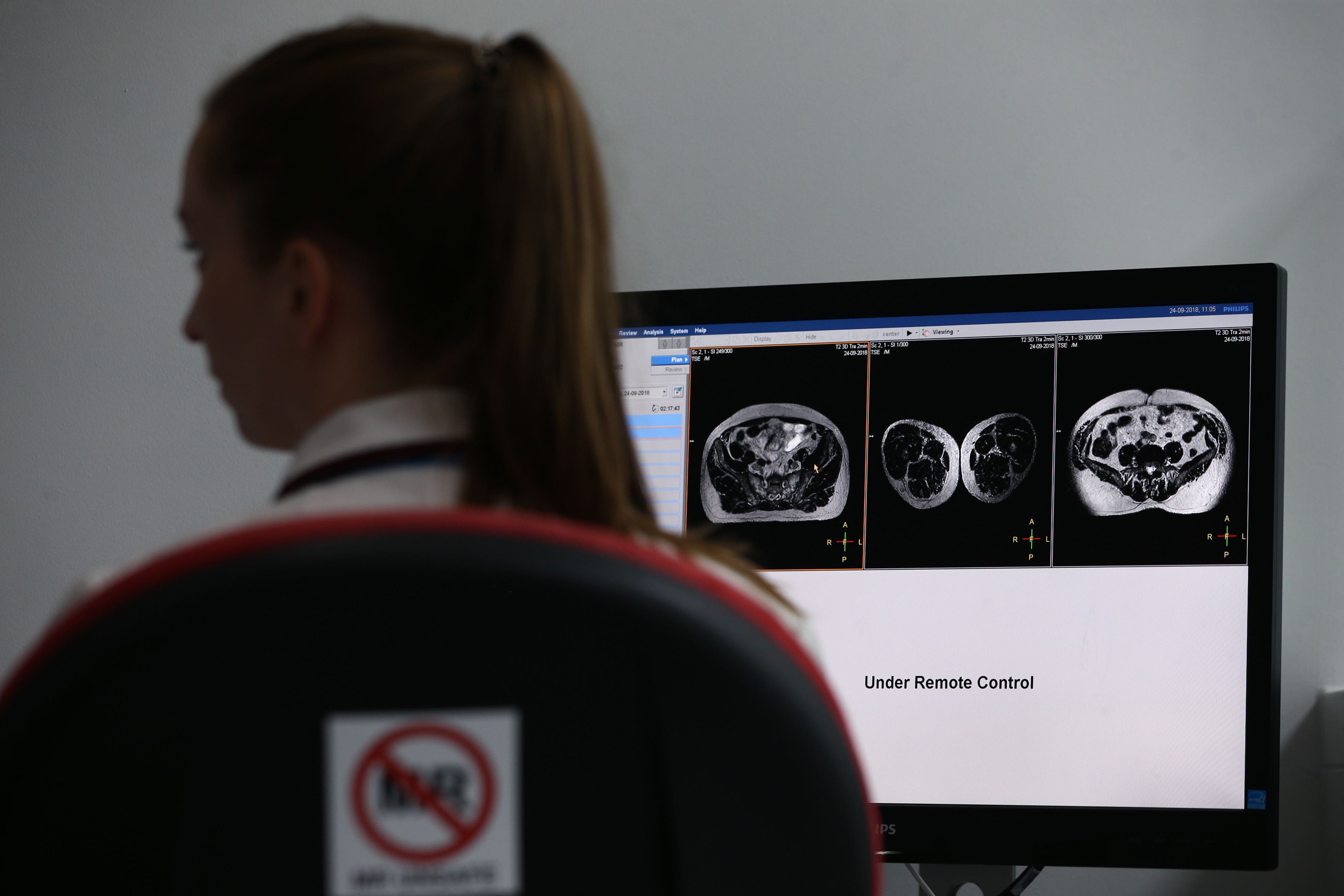Health Secretary to sign cancer treatments deal with leading pharmaceutical company
Steve Barclay is due to sign a memorandum of understanding with BioNTech on Friday.

Research into new cancer treatments could be sped up by a government deal with a leading pharmaceutical company, the Health Secretary has said.
Health Secretary Steve Barclay is due to sign a memorandum of understanding with BioNTech on Friday, to “ensure the best possible treatments are available as soon as possible” for cancer.
The agreement means cancer patients in England will get early access to trials exploring personalised mRNA therapies, like cancer vaccines, possibly from as early as autumn this year.
BioNTech worked with Pfizer to develop the widely-used mRNA vaccination against Covid, and its partnership with the UK Government could deliver 10,000 doses of personalised therapies to UK patients by 2030 through a new research and development hub.
Mr Barclay said: “Once cancer is detected, we need to ensure the best possible treatments are available as soon as possible, including for breast, lung and pancreatic cancer.
“BioNTech helped lead the world on a Covid-19 vaccine and they share our commitment to scientific advancement, innovation and cutting edge scientific technology, making them perfect partners for a deal to work together on cancer vaccines.”
He added: “This partnership will mean that, from as early as September, our patients will be among the first to participate in trials and tests to provide targeted, personalised and precision treatments using transformative new therapies to both treat the existing cancer and help stop it returning.
This agreement builds on this Government’s promise to increase research and development spending to £20 billion per year and demonstrates the UK remains one of the most attractive places in the world for innovative companies to invest in research, trial new treatments and treat patients more effectively
“This agreement builds on this Government’s promise to increase research and development spending to £20 billion per year and demonstrates the UK remains one of the most attractive places in the world for innovative companies to invest in research, trial new treatments and treat patients more effectively”
Professor Ugur Sahin, CEO and co-founder of BioNTech said: “The UK successfully delivered Covid-19 vaccines so quickly because the National Health Service, academia, the regulator and the private sector worked together in an exemplary way.
“This agreement is a result of the lessons learnt from the Covid-19 pandemic. Drug development can be accelerated without cutting corners if everyone works seamlessly together towards the same goal. Today’s agreement shows we are committed to do the same for cancer patients.”
Prof Sahin added: “Our goal is to accelerate the development of immunotherapies and vaccines using technologies we have been researching for over 20 years. The collaboration will cover various cancer types and infectious diseases affecting collectively hundreds of millions of people worldwide.
“If successful, this collaboration has the potential to improve outcomes for patients and provide early access to our suite of cancer immunotherapies as well as to innovative vaccines against infectious diseases – in the UK and worldwide.”
Bookmark popover
Removed from bookmarks